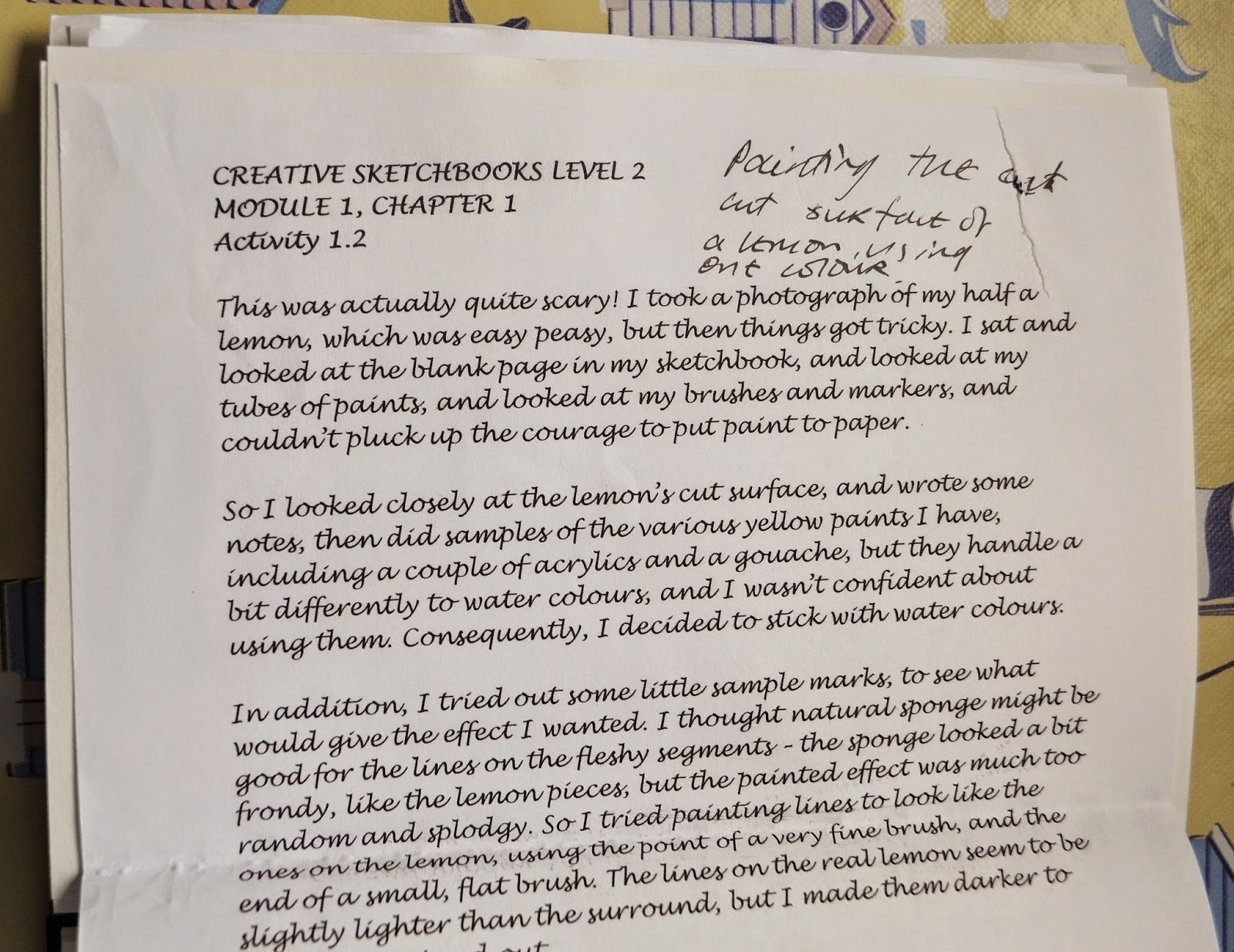MODULE 1, CHAPTER 1
Activity 1.2
Painting the surface
of a cut lemon, using only one tube of yellow paint
This
was actually quite scary! I took a photograph of my half a lemon, which was
easy peasy, but then things got tricky. I sat and looked at the blank page in
my sketchbook, and looked at my tubes of paints, and looked at my brushes and
markers, and couldn’t pluck up the courage to put paint to paper.
Sadly, I've mislaid the photo of my lemon, but I have the notes I wrote when I looked at the cut surface as carefully as I could.
Second
Effort:
Happier with this – I got the right number of segments, but they needed more
colour, and the markings, created with the edge of a small flat brush are
better. I built up colour on the pips and the edge of the lemon, which is
darker where the zest is, and I tried to get the effect of the little dots that
are there – when you look closely it’s not a solid block of colour.
I did
samples of the various yellow paints I have, including a couple of acrylics and
a gouache, but they handle a bit differently to water colours, and I wasn’t
confident about using them. Consequently, I decided to stick with water colours.
In
addition, I tried out some little sample marks, to see what would give the effect
I wanted. I thought natural sponge might be good for the lines on the fleshy
segments – the sponge looked a bit frondy, like the lemon pieces, but the
painted effect was much too random and splodgy. So I tried painting lines to
look like the ones on the lemon, using the point of a very fine brush, and the
end of a small, flat brush. The lines on the real lemon seem to be slightly
lighter than the surround, but I made them darker to make them stand out.
First
Effort:
I worked from centre out because I thought it would be easier, but painting a
colour wash circle first might have been better. I lost the pithy white bit in
the centre, and ended up with seven segments instead of nine, and they look a
bit seaweedy or leafy. This was a rubbish image, but I quite like the edging!
Third
Effort: Disaster!
Tried painting over a colour wash, but the base colour was too dark, even after
I blotted it, and things just went downhill from there.
Overview: It’s actually quite
difficult trying to reproduce something in just one colour – I found I could
water the paint down to make it paler, and build up layer by layer (either with
the wash or with the stronger, original colour) to get darker yellows for the
rind around the edge and the pips. So even with just one tube of paint you can
produce different colours, which is pretty amazing – it’s knowing how to do it that’s the problem!
And finally, just to show that the blog notes are more or less the same as the ones I stick into the sketchbook (although I do change the odd word here and there!)







No comments:
Post a Comment